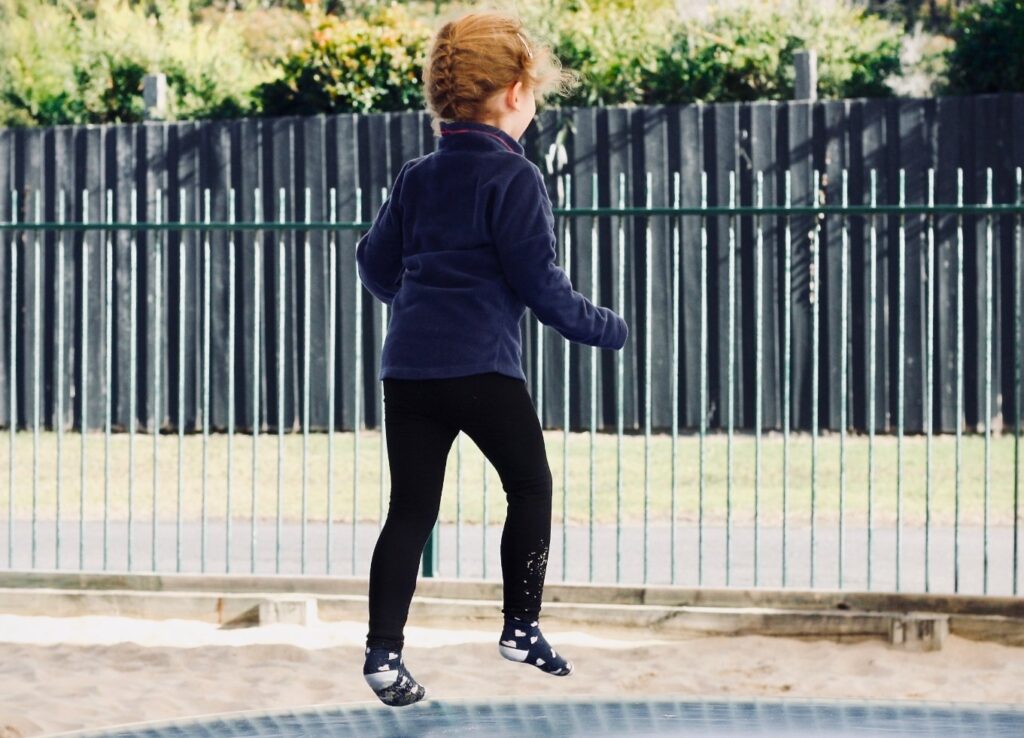The vestibular system can play an important role in the life of a child with autism.
In the below article we break down what the vestibular system is and let parents know how it can impact their child .
Vestibular system and autism
As parents, we know that every child is unique and special in their own way.
For parents of autistic children, embracing their child’s individuality is even more crucial.
Autism is a complex condition that affects communication, behaviour, and sensory processing.
One critical aspect of sensory processing that significantly impacts autistic children is the vestibular system.
In this article, we explore the role of the vestibular system in autistic children and the importance of compassionate support for their sensory experiences.

What is the vestibular system?
The vestibular system is an intricate network of sensory organs located in the inner ear.
It plays a vital role in maintaining balance, spatial orientation, and coordination.
It lay persons terms it helps us understand where our bodies are in space and enables us to move smoothly and confidently.
For most children, the vestibular system works harmoniously with other sensory systems, such as sight and touch.
It allows them to explore their environment and engage in various physical activities with ease.
For autistic children however, sensory processing differences are common, and the vestibular system can be particularly affected.
Many autistic kids may experience challenges in processing and integrating vestibular information, which can lead to a range of behavioural responses.
These responses may include avoiding certain movements, seeking specific sensory input, or becoming overwhelmed in sensory heavy environments.
Some examples of how it may impact an autistic child
The impact of vestibular dysfunction on an autistic child can vary depending on the severity of the dysfunction and the individual child’s needs and abilities.
Some possible effects of vestibular dysfunction on an autistic child include:
Sensory seeking
Some autistic children may actively seek vestibular stimulation.
They may engage in repetitive movements, such as spinning or rocking, to self-regulate and fulfill their sensory needs.
While this may seem unusual to others, it is essential to recognise that these actions serve a purpose for the child’s sensory processing.
Sensory avoidance
On the other hand, some autistic children may demonstrate sensory avoidance, steering clear of activities that involve significant vestibular input.
These children might avoid swings, slides, or other activities that involve movement, as it can be overwhelming and disorienting for them.
Balance and coordination
The challenges with the vestibular system can also affect a child’s balance and coordination.
Simple tasks like walking in a straight line, riding a bike, or climbing stairs may present difficulties for some autistic children.
They may also have difficulty with fine motor skills, such as writing or using scissors.
Emotional impact
When the vestibular system is not functioning optimally, it can affect emotional regulation.
Some children may experience heightened anxiety or stress, especially in situations where they feel out of control due to sensory overwhelm.
Dizziness and vertigo
Children with vestibular dysfunction may experience dizziness or a feeling of spinning (vertigo) when they move their head or body in certain ways.
This can be disorienting and uncomfortable, and may make it difficult for the child to participate in certain activities.
How can parents support their child?
As parents, it is essential to approach our autistic children’s sensory experiences with empathy and understanding.
Remember that these sensory processing differences are a natural part of their neurological makeup.
Rather than attempting to change or suppress these responses, we can offer support and create an environment that accommodates their unique needs.
Provide sensory friendly environment
Providing a sensory-friendly environment at home and where possible in public spaces can make a significant difference.
This may involve reducing bright lights, minimising loud noises, and offering calming spaces where children can retreat if they feel overwhelmed.
Some parents have had success with additions like ear defenders for their children.
Provide sensory outlets
If your child is seeking sensory input you could try and guide that desire.
Sensory play can be beneficial for autistic children.
Activities that involve gentle vestibular input, such as swinging slowly or rocking, can help them self-regulate and find comfort.
Something like a trampoline at home could help your child scratch that sensory desire without being disruptive.
Therapy
Occupational therapists who specialise in sensory processing can offer valuable insights and strategies to support your child’s vestibular challenges.
If therapists aren’t an option then special needs coordinators at schools will likely be trained on the subject.
Talk to your child
Depending on your child’s level of communication and understanding it is important to speak to them about sensory issues.
They may be confused in terms of why things may be attractive or repulsive to them so open conversations are vital.
Summary – The vestibular system and autism
Understanding the impact of the vestibular system in autistic children is crucial for parents.
The sensory processing differences experienced by autistic children are a fundamental aspect of who they are.
As parents, we can provide compassionate support to help them navigate the world with confidence and self-assurance.
By embracing their individuality and unique sensory experiences, we can create an environment where our children feel happy and comfortable.

